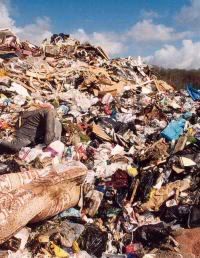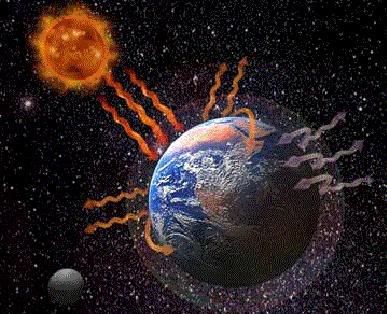Consumerism isn't the only force driving the population control ideology. Materialism and hedonism contribute as well, but these two vices are quite ancient; consumerism is the new kid on the block. Only after we were well into the Industrial Revolution was consumerism even possible - so i believe it deserves special attention and a creative, thoughtful response.

Allow me first to define a couple of key terms. For this topic, a consumer must be defined as someone who consumes resources that will not be replenished within a reasonably brief period of time - let us say within the span of a human life, and/or who produces waste which is not neutralized within a reasonable period of time. Both ends of this industrial, consumerist pattern are problematic, causing harm to other forms of life, and to Earth itself.
The "ism" in consumerism refers to the dogmatic belief that to thus consume is an inherent part of living as a civilized human being, that we must live that way. We're all familiar with the incessant drumbeat message: With every passing year, we consume more resources, produce more waste, and cause more devastation. The 6:00 news tells us of a new environmental crisis; we watch a nature documentary and learn of another endangered species; we open a popular magazine and read of global warming. We accept the word 'consumer' as our rightful moniker, and we meekly take upon ourselves the sinister meaning of that identity. The unspoken, perhaps subconscious logic is clear:
1. Nature is beautiful but fragile.
2. Man consumes, and so destroys nature.
3. Therefore, we are doomed, and it's our own fault.
Perhaps some folks prefer to alter the 3rd point to point to some other people as the sole problem; some may openly advocate drastic population controls. In any case, the general effect is that it evokes a type of low-grade despair. Or maybe panic, and a frenetic search for an immediate panacea.
 At one level, it can be seen that not all human activity is despicable. Burning natural gas to warm our houses may be consumeristic, but burning wood from a local forest, if done properly, is not. Radioactive nuclear waste may be a serious problem, while kitchen scraps can easily be composted. But it all seems so overwhelming, and these small points so insignificant.
At one level, it can be seen that not all human activity is despicable. Burning natural gas to warm our houses may be consumeristic, but burning wood from a local forest, if done properly, is not. Radioactive nuclear waste may be a serious problem, while kitchen scraps can easily be composted. But it all seems so overwhelming, and these small points so insignificant.
The more intense the despair and panic, the more stark are the counterproductive effects. The public figures producing the loudest and shrillest cries of alarm are often the very ones living in a profusely wasteful manner, while conjuring lame arguments of self-exemption. Despair and panic are like that, producing paralysis and a counterproductive exacerbation of the problems.
Even more problematic: this panic and despair can lead, either explicitly or subconsciously, to a sort of collective self-disgust, and a fear or loathing of our own generative instincts. So we stupidly buy the myth of overpopulation, and turn aside from a generous love of human life. We don't want to thrive, because we are secretly ashamed of our life. (Ironically, i believe that the current cultic obsession with titillating sex also stems from this unaddressed fear of our reproductive powers.)
If these words resonate at all, here is my plea: Let us shake off the mesmerizing effects of this despairing line of thinking. Realize that the second premise of the above logical syllogism is very refutable. We do not have to live in a way that destroys our world. Let us embrace a more intelligent and more constructive syllogism.
That logic begins by recognizing that God created this world for us to live in. We are not an accident, nor are we intruders; we are meant to be here. In truth, we are meant to thrive, and we are meant to be stewards of this world (and, who knows, perhaps eventually beyond, to other parts of the universe!)
We should not expect or even try to turn this around on a dime. It took about 200 years of industrialization to get to our present wasteful state. It may take awhile to climb back out, and into a more healthy and sustainable system of living. My point is that despair and panic are not the way to go. Shrill and desperate cries of alarm tend to paralyze rather than mobilize. The more reasonable way is to first embrace a better syllogism:
1. God's creation is good.
2. Man is the pinnacle of God's creation.
3. Therefore, let us exercise responsible dominion and stewardship.
It all begins with faith, the most reasonable state of mind for a human being.












